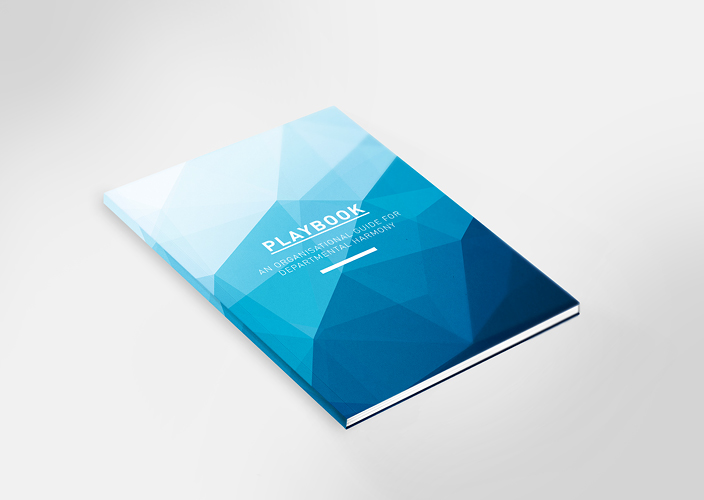Marketing hate sales and sales think marketing are useless – it’s time to play book.

It’s that age-old adage again: sales and marketing can’t see corporate-eye-to-eye. Sales think all marketing do is order branded stationery and marketing believe sales spend all day trawling LinkedIn and Facebook.
Well, here’s a new marketing buzzword to get all the offices playing nicely again.
I love a good marketing buzzword. Of late we’ve had Big Data, custom audiences, gamification… the list goes on. The latest to crop up on the radar is ‘Playbook’. What on earth is a Playbook? A friend of mine at an international marketing agency recently pitched this question to her clients, and was answered with a predictable chorus of “I don’t knows”.
So what is a Playbook?
The truth is, the marketing landscape has changed dramatically over the past decade. The role of Marketing Manager is giving way in many cases to the Chief Marketing Officer, who no longer has the luxury of operating in a silo with their team. Their function demands utmost collaboration with the rest of the organisation – especially sales. More than ever, CMOs are directly accountable for business performance; that means money.
A Playbook is a collection of organisational assets, clearly communicated to form the ultimate sales tool. It bridges the sales and marketing functions. Some Playbooks can be client facing, i.e. a brochure or product portfolio, but the most common are sales Playbooks.
What goes into a Playbook?
Content is king right now and the contents of a Playbook, for internal eyes or not, should follow the same principle. For the purpose of this blog, we’ll assume we’re creating a sales Playbook. As a general rule, you should look to include the following detail:
- Customer analysis – Not just who they are but their ‘buying pains’ (another buzzword) as well. Only in understanding your prospects’ purchase needs will you be able to address them with useful content in your Playbook that’s guaranteed to convert.
- Company values – This is your organisational vision and/or mission statement. Remember your audience here too: the sales team. They don’t need to be bombarded with marketing fluff, they need to understand the company direction, so be clear with the organisation’s expectations.
- Product information – Technical data and training examples are vital for a Playbook. Your sales team won’t have a chance when it comes to selling the organisation’s products if they don’t understand them fully. Mixing media here is a great way to communicate complex information. For digital Playbooks, consider creating videos to demonstrate the product portfolio.
- Case studies – Although it could be argued that success stories are best left for prospect consumption, they add weight to a Playbook, client-facing or not. Including them can also create a valuable credibility document that the sales team can use to tempt prospects.
- Processes – This part is important. Gone are the days when marketing could simply chuck leads over the fence, and sales would have to grapple to catch whichever ones they can. Marketing are now expected to supply sales with qualified leads, already advanced through the sales funnel. For this reason it’s vital that your Playbook outlines exactly how leads should be handled at every stage and what the expectations are for both sales and marketing.
Why do I need a Playbook?
As a large SME, if you haven’t updated your Playbook in the last 5 years, or haven’t got any form of internal marketing collateral, then you need a Playbook. However this isn’t just a case of jumping on the latest marketing fad. This is about creating real organisational change for two integral business functions, that will benefit overall business performance.
Playbooks are demanding to create. They require a broad spectrum of content, all of which needs to be brainstormed and agreed upon internally. Outlining business processes, briefing creative assets out to suppliers, and disseminating all the information needed is a resource-heavy undertaking. For this reason, the simple act of creating a Playbook helps to ally the sales and marketing teams. The completed Playbook acts as collaboratively created organisational rulebook, something on which sales and marketing agree, and by which they strive to operate.

Most organisations operate like this: keep working as hard and fast as you can to meet demand, without stopping to assess your strengths and weaknesses. It’s inevitable and far from a right or wrong situation. However, working in this way certainly isn’t scalable in the long-run. Just as marketing analyse their competitive space, every organisation must review their inner processes. To create a Playbook, process assessments are essential. These can highlight weaknesses in an organisation’s workflow. This isn’t a bad thing, on the contrary, it merely means that the sales process can be perfected, tightened and streamlined for optimum efficiency.
Playbooks accelerate the sales process and make an organisation richer, faster. That’s quite a sweeping statement, but the fact is a well produced Playbook will do just that. It will be valuable and integral to the way sales operate on a day-to-day basis.
Who can help me create my Playbook?
Playbooks can be daunting, especially if you’re a large organisation satisfying multiple verticals across different markets. How do you arrange all of that information in a way that’s useful for the sales team? Here is where your creative agency steps in.
At a basic level, they’re on hand to help break down all the information you have, highlight the most important or influencial points and serve it all up in a creative and engaging way to ensure total organisational buy-in. On a greater level, your creative agency shouldn’t be just a supplier throughout your Playbook project. They should be an extension of your marketing team, a mediator between functions, and somebody who will make sense of it all when you can’t.
So, ready to create your perfect Playbook? What are you waiting for?!
By Mark Bonner
About markmaking*
markmaking*
mark-making* is an award-winning creative agency specialising in branding, campaigns and communications